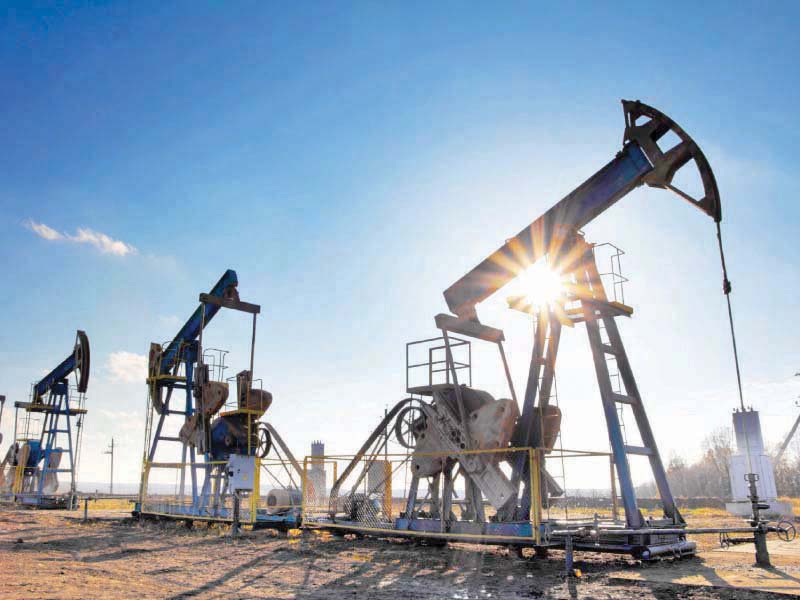
Textile and compressed natural gas (CNG) sectors have opposed a gas pricing formula under which tariff will be collected for the idle capacity of pipelines, which will strengthen the monopoly of public gas utilities.
Sui Northern Gas Pipelines Limited (SNGPL) has idle capacity due to gas shortage in the system. The government has announced the allocation of idle capacity to the private sector for full utilisation of pipelines in a bid to overcome the gas shortfall.
However, at a public hearing on Thursday, SNGPL sought permission of the Oil and Gas Regulatory Authority (Ogra) for linking gas tariff with throughput rather than the designed capacity of pipelines. Gas companies are operating on a pricing formula based on guaranteed rate of return. Ogra has allowed a rate of return that is based on utilisation of pipelines in line with gas volumes.
Now, SNGPL wants to collect tariff based on full capacity of the pipelines irrespective of the gas volumes. The utility wants to charge for idle capacity rather than allocating it to the private sector.
At the public hearing, an intervener, All Pakistan CNG Association Chairman Ghiyas Abdullah Paracha, opposed the new gas pricing formula. He stressed that SNGPL should follow the decisions taken by Ogra and the government for bringing down gas prices.
Paracha lamented “SNGPL moves a petition after every six months to seek increase in gas tariff on different accounts. When there is time of reducing gas prices, the utility starts claiming revenue shortfall on account of outstanding dues.”
He termed it unfair that the burden of domestic consumers was being put on those that were already receiving expensive regasified liquefied natural gas (RLNG), like CNG filling stations.
He pointed out that different sectors like fertiliser and major export-focused industries were already receiving subsidised gas, therefore, the CNG sector had been badly hit due to increase in gas prices.
Saying that gas utilities were facing 11-17% unaccounted-for-gas (UFG) loss, Paracha questioned the rationale behind the increase in UFG rate and urged the regulator to look into the matter.
“CNG sector should not be burdened more as it has already been hurt by consuming expensive gas,” he remarked. Representing the All Pakistan Textile Mills Association (Aptma), Shahid Sattar raised question over the proposal of charging from consumers for the idle capacity of gas pipelines.
He decried the link sought by the gas company between tariff and throughput rather than the designed capacity of pipelines.
He was of the view that the throughput could vary and the company’s responsibility was to arrange gas supply. “There is no justification for 100% capacity allocation,” he said. Sattar pointed out that consumers were already paying double tariff on account of RLNG expansion, debt servicing and rate of return on assets.
Responding to queries from The Express Tribune, an SNGPL spokesperson said Ogra had been allowing tariff based on full pipeline capacity and disallowed it later. “Ogra linked it with actual utilisation of pipeline capacity,” he said.
According to the spokesperson, the company had to seek borrowing and had debt servicing cost, which required pricing with the full pipeline capacity rather than actual utilisation of pipeline. He revealed that for four months in a year, there was no full utilisation of the pipeline.
The spokesperson said a World Bank mission also agreed with the plan that all countries followed the model of pricing with full pipeline capacity like LNG terminals. So, “Ogra should follow the model of pricing with full pipeline capacity rather than actual utilisation of pipeline.”
At the public hearing, Aptma’s Sattar also opposed a proposal of extending 300,000 new gas connections, saying gas was already not available to the existing consumers. “Expansion of the system is totally uneconomical,” he said and warned that the gas company’s condition would further deteriorate.
Despite the gas shortfall, SNGPL requested the regulator at the hearing to allow 0.3 million new gas connections. Ogra has already permitted 0.4 million new connections for the ongoing financial year.
SNGPL officials said the company had 2.7 million pending applications for gas connections, adding that applicants got gas connection after three years due to a large number of pending cases.
They emphasised that the new gas connections would help ease the burden of pending requests for gas connections. Company management sought implementation of the proposed increase in meter rent from Rs20 to Rs40 per consumer. The Economic Coordination Committee (ECC) has already approved the increase in meter rent.
SNGPL management said the company had acquired loans from commercial banks to build a pipeline and had to pay Rs35 billion to them.
SNGPL revealed that it was facing a revenue shortfall of Rs35.5 billion on the sale of locally produced gas. It was also seeking revenue of Rs29 billion to cover the cost of LNG supply. Company officials cited rupee-dollar exchange rate and crude oil prices, which were indexed with the gas tariff, as major reasons for the increase in gas prices.
Published in The Express Tribune, November 27th, 2020.
Like Business on Facebook, follow @TribuneBiz on Twitter to stay informed and join in the conversation.





1730959638-0/trump-(19)1730959638-0-165x106.webp)












COMMENTS
Comments are moderated and generally will be posted if they are on-topic and not abusive.
For more information, please see our Comments FAQ